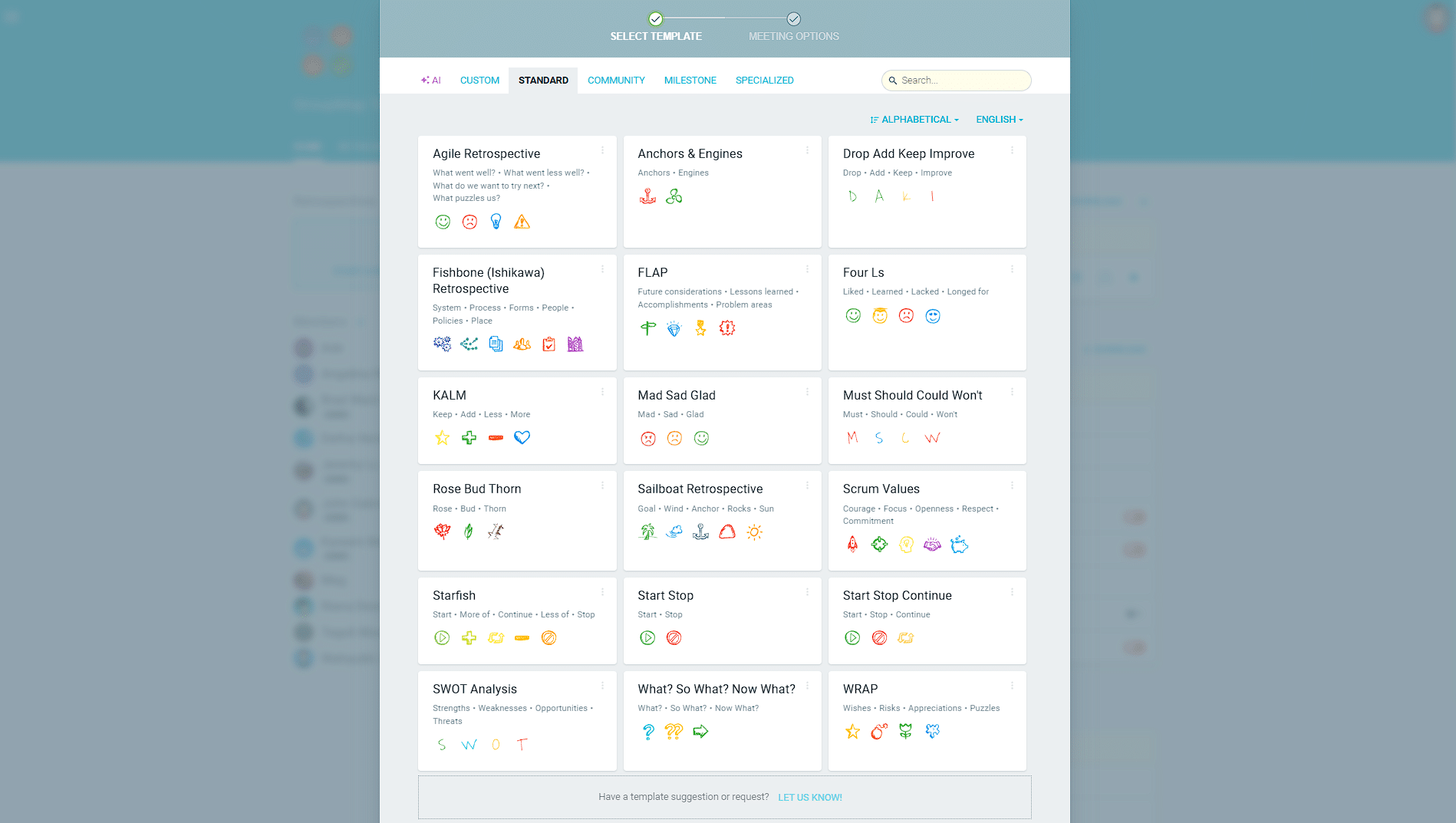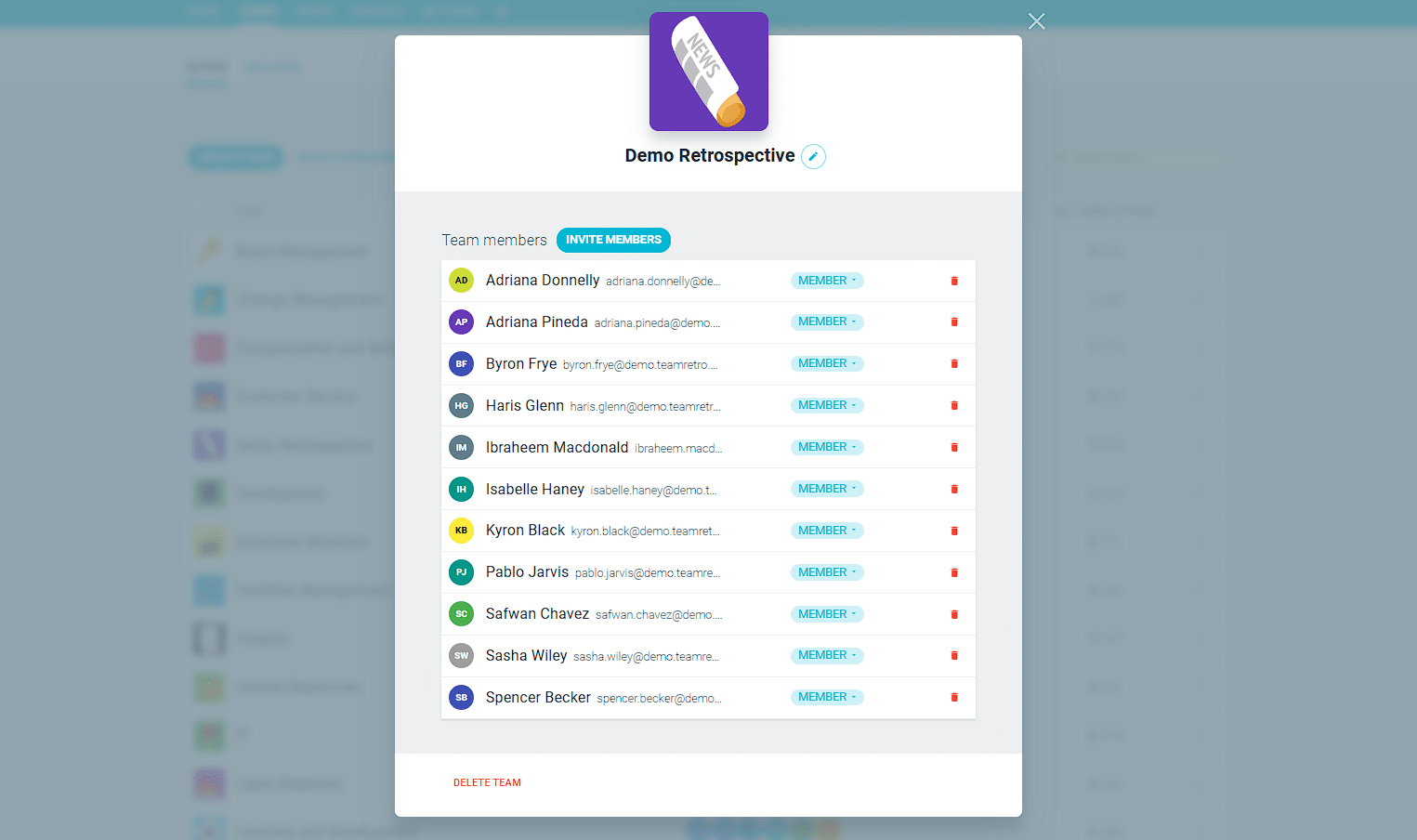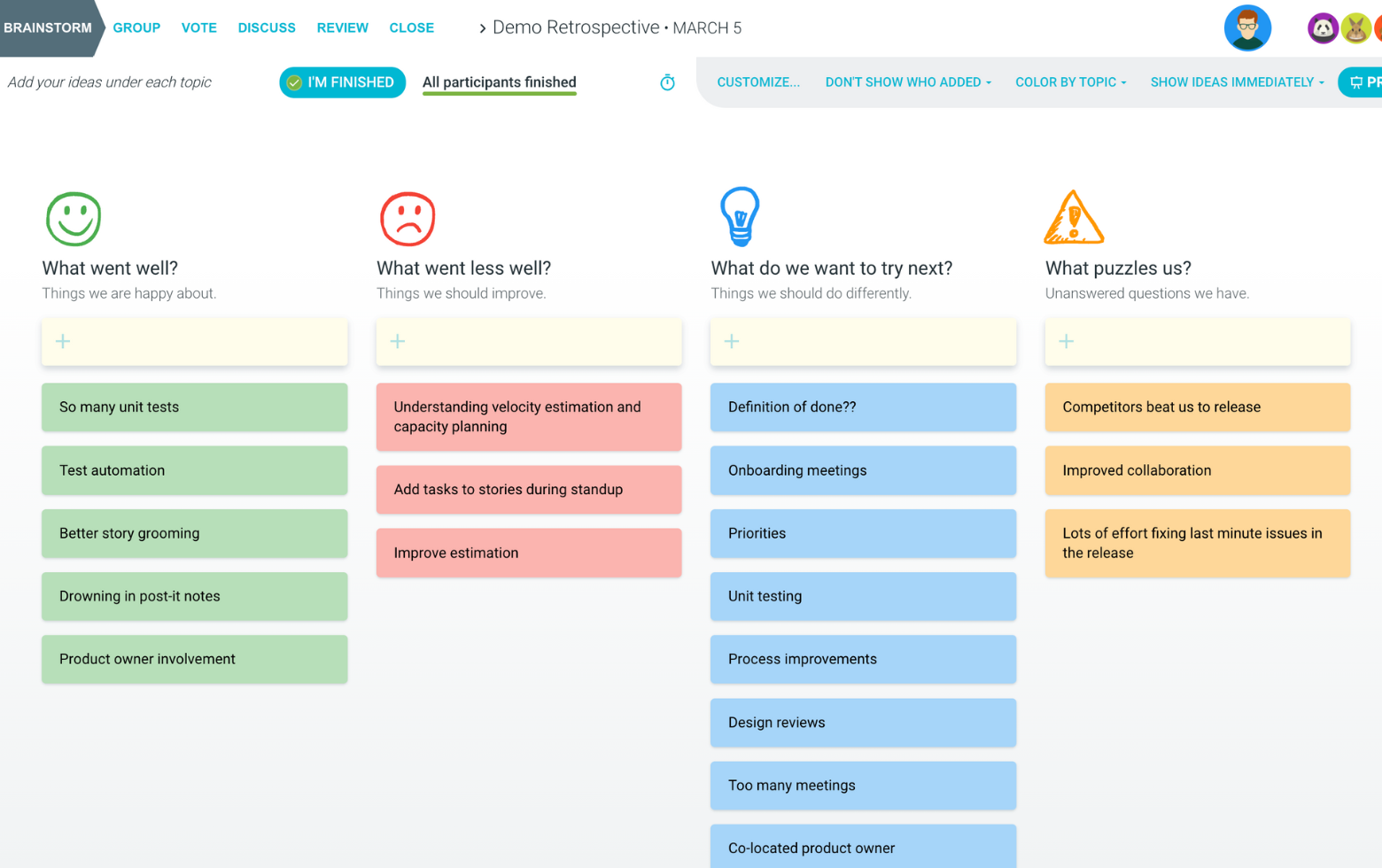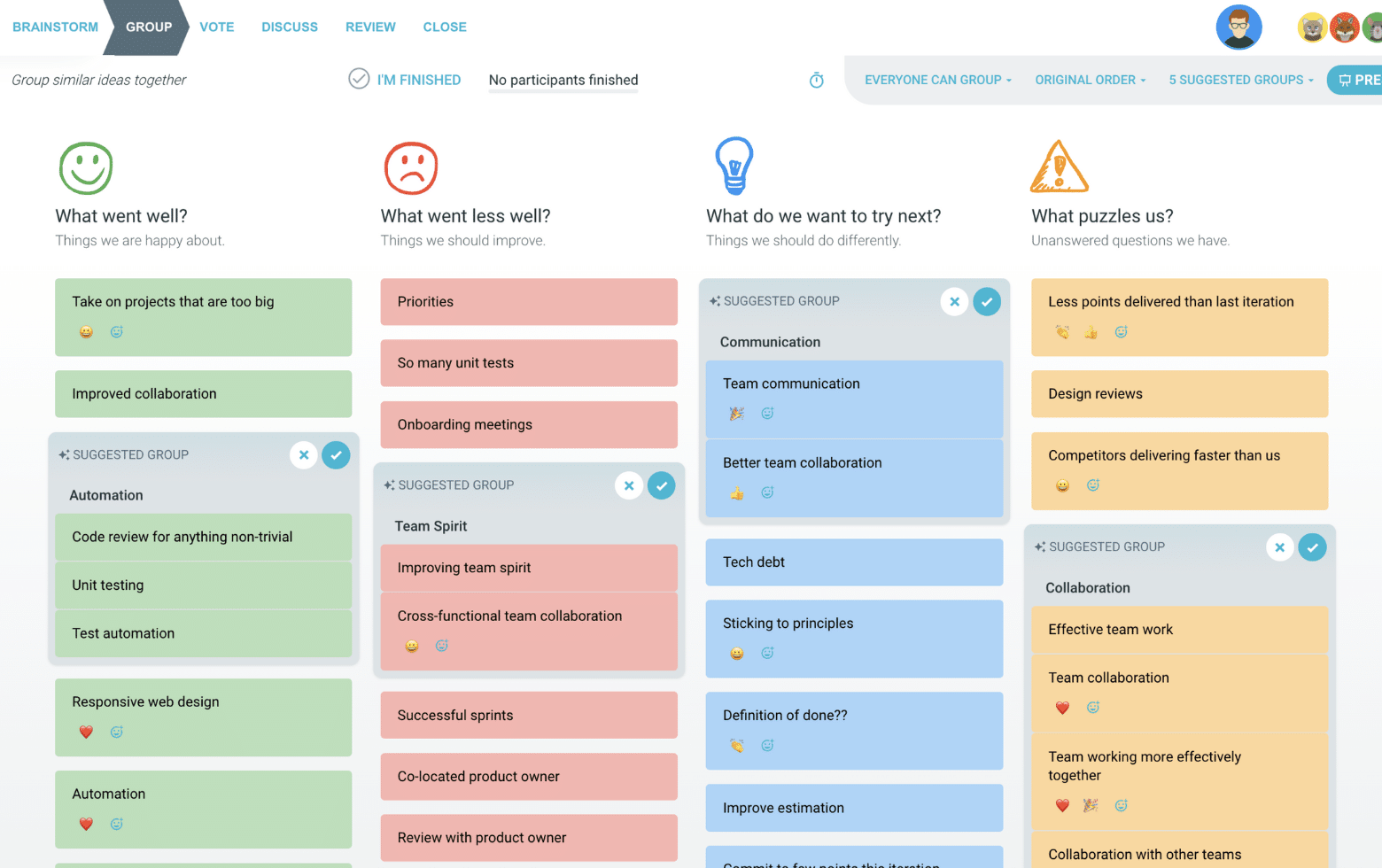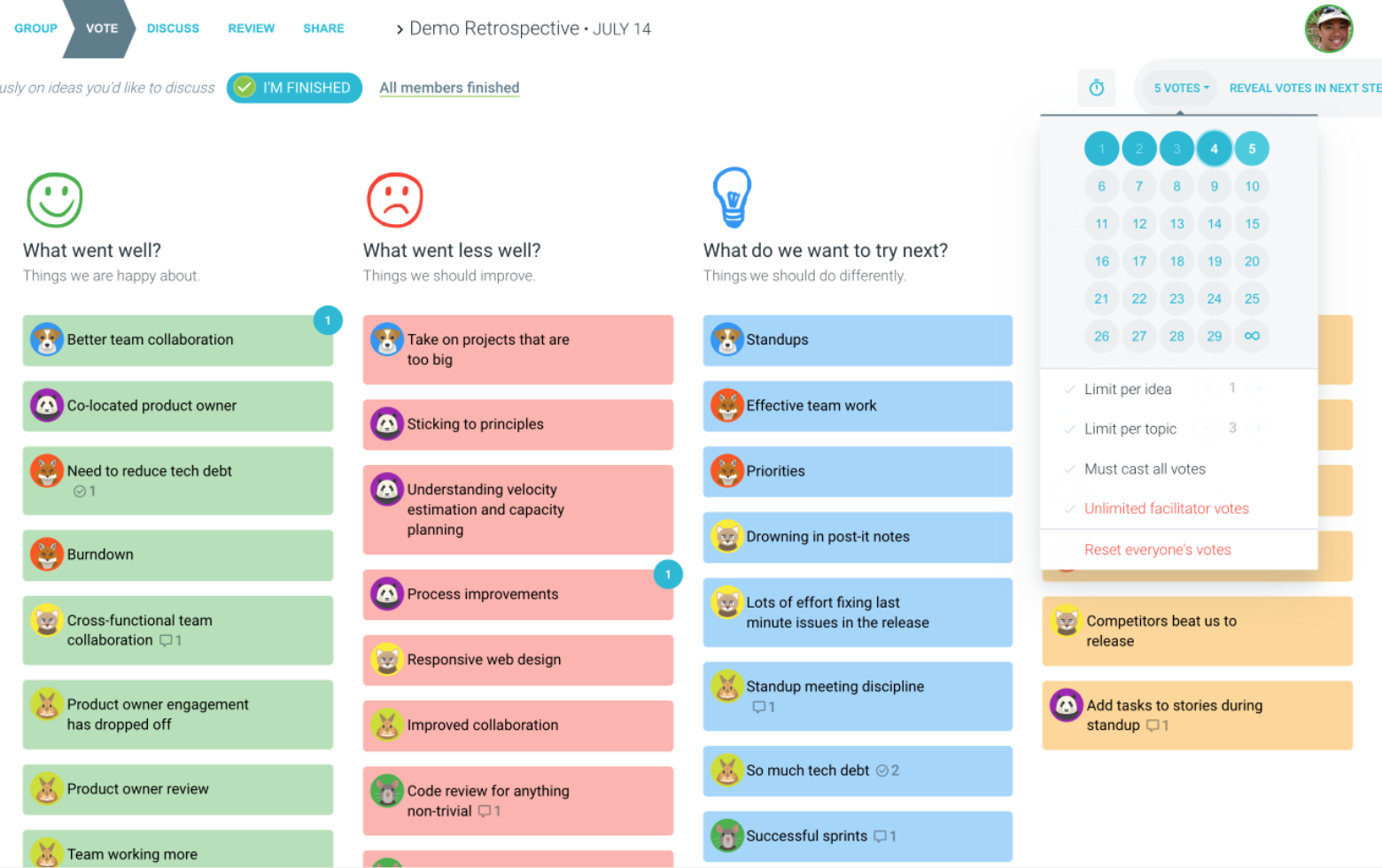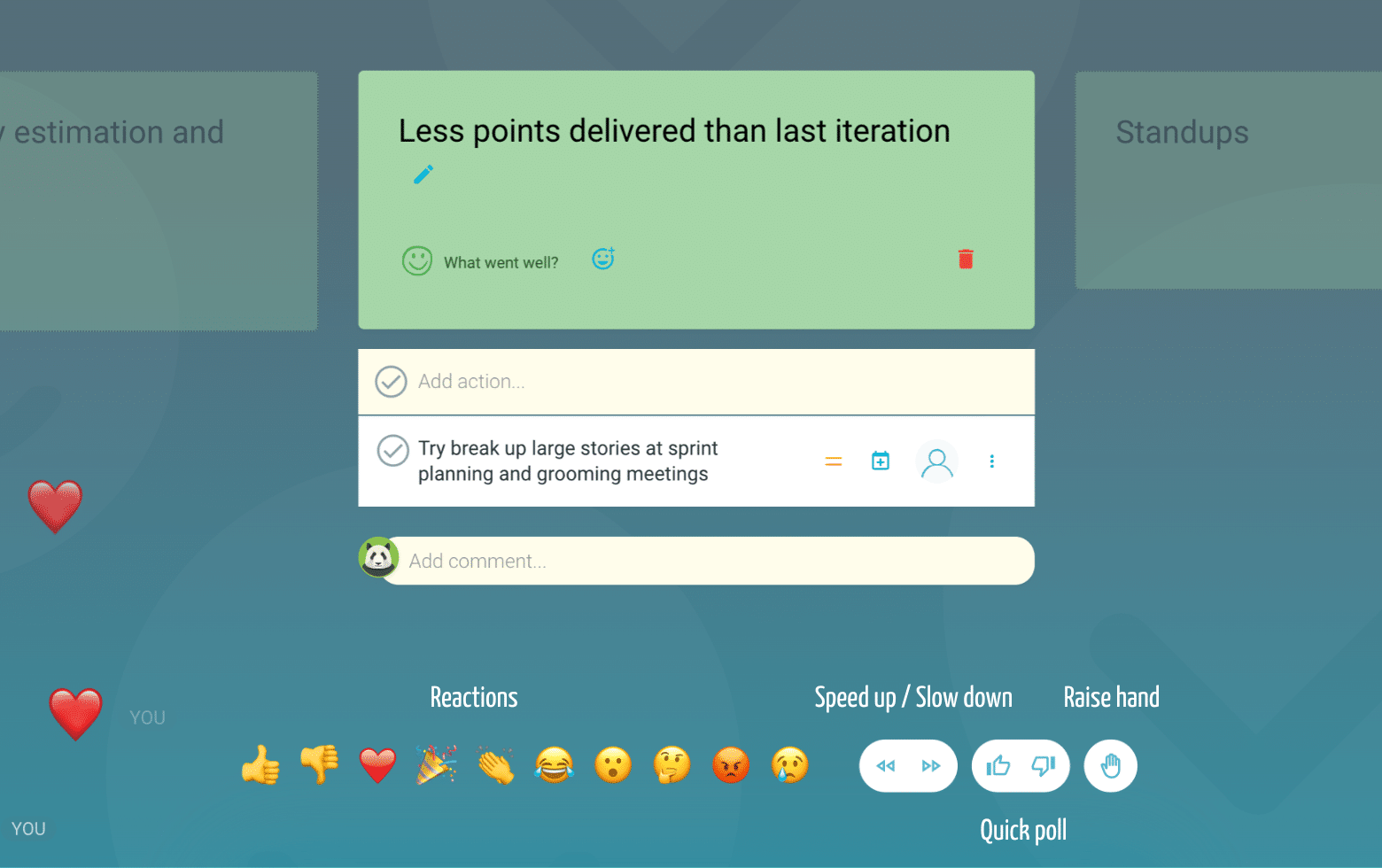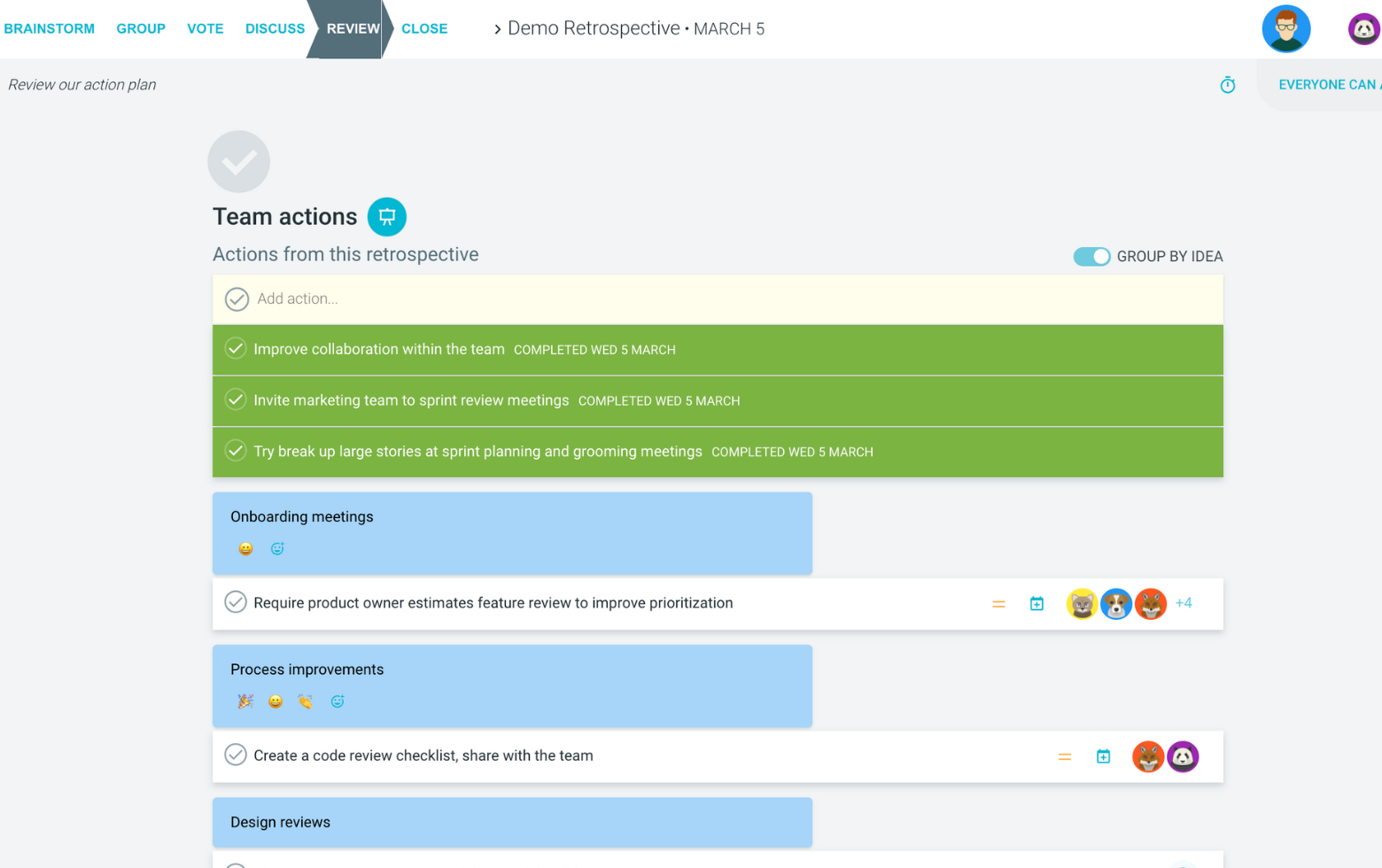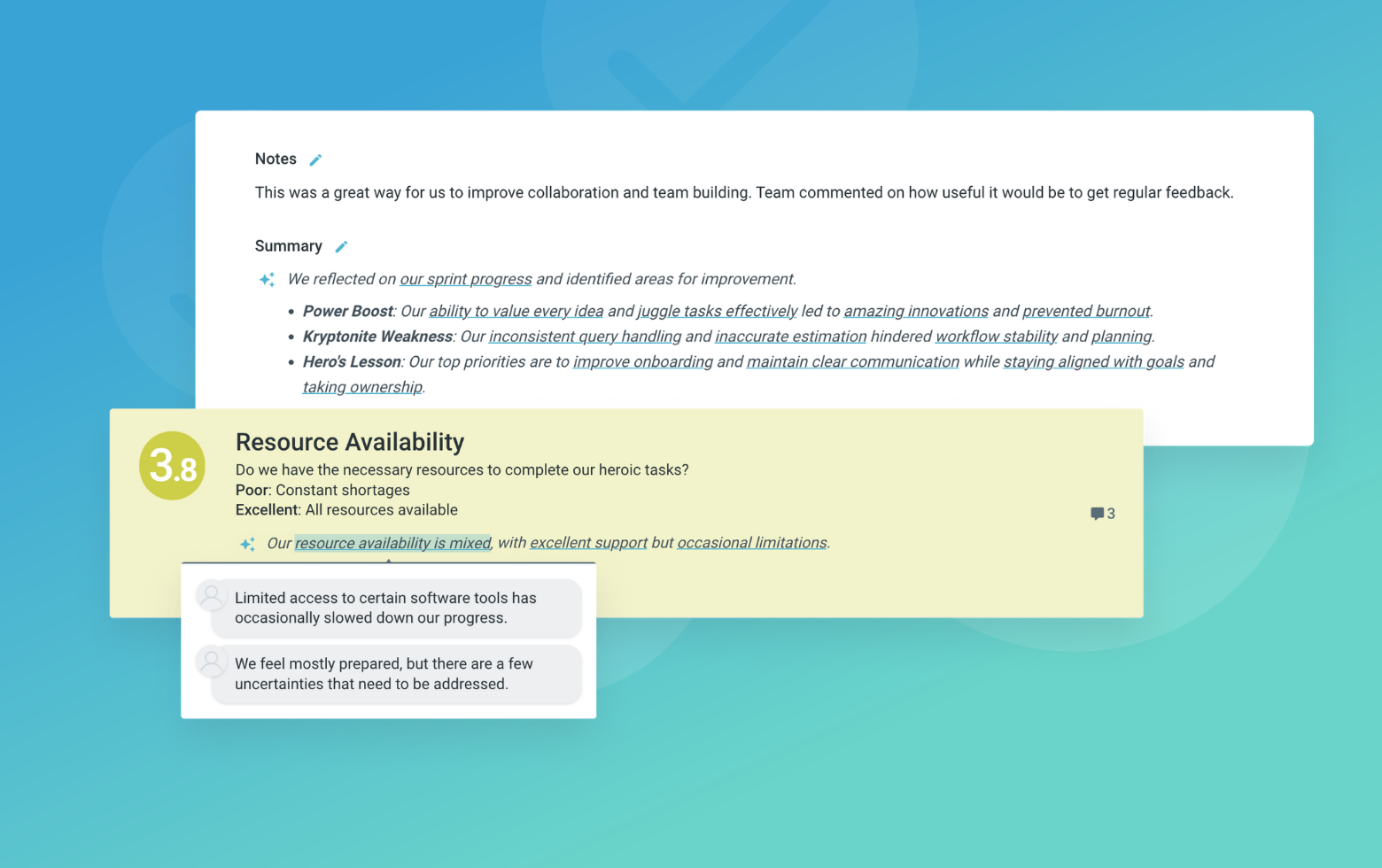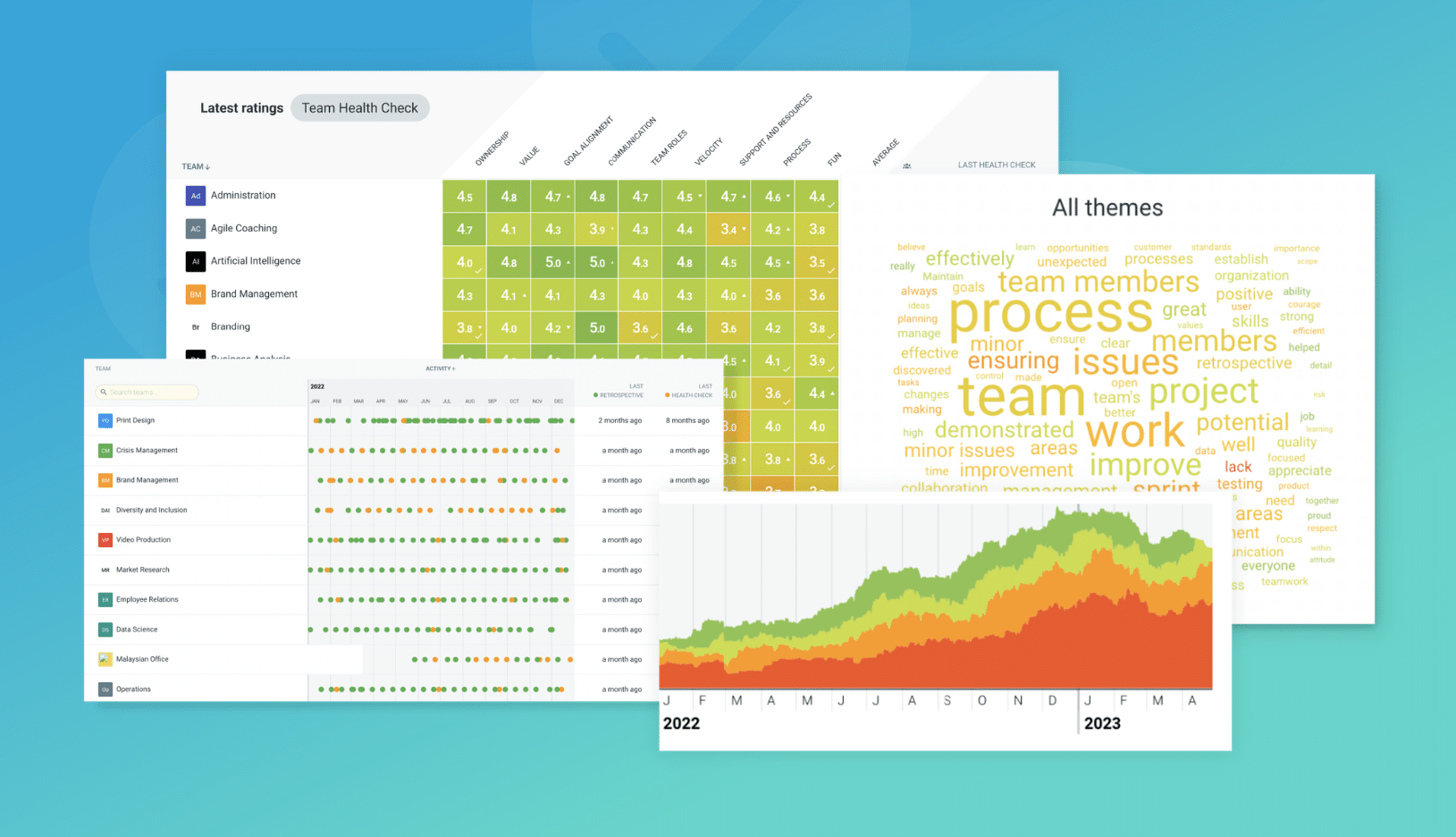What is the Vacation retrospective?
Take a reflective trip down memory lane and share the highlights of the last sprint.
Like sprints, vacations seem to be over in the blink of an eye; and like successful sprints, good vacations require planning, time and resources. TeamRetro’s retrospectives aim to foster constructive conversations, so if you have observed your retrospectives are being used to vent and rant, a retrospective such as this could be for you.
As with many of our retrospectives, this theme-based retrospective has been shaped to position team members to adopt an optimistic view of the sprint (after all who doesn’t like a holiday?).
The Vacation retrospective format
Destination
Participants describe either what they perceive to be the final destination (what they will see, experience, and feel) or what they will be able to show at the end of the sprint. This might be the current state or a re-statement of the end point of the sprint (rephrased sprint goal).
Lost Luggage
Participants are given the opportunity to call out challenges and risks that they faced during the sprint. Losing one’s luggage is a nuisance, but it’s only one element of the vacation (let’s face it, getting one’s luggage back is a far better story).
Packing
The “Packing” category sees participants review the effectiveness of their planning for the sprint just gone, and thus can be useful for the one ahead. They consider the actions they undertook and the resources they accessed that best positioned them for a happier holiday.
Vacation Snaps
The “Vacation Snaps” are the high, and potentially low points that are significant, meaningful and that the team wants to share. They represent learning opportunities as well as the key aspects of the vacation trip that the team reminisces over.
Suggested icebreaker questions for Vacation retrospective
- Where did you last go on holiday and why did you go there?
- What’s your ideal holiday?
- If you could go to a mythical place for your next holiday where would it be?
Retro Rehearsal
Invite your team to rehearse the retro by asking them to think about the purchase of their new home.
- What would be your destination?
- What do you need?
- What issues could you encounter?
- What would be the highlights?
Ideas and tips for your Vacation retrospectives
-
Ask everyone about their last, or next vacation destination. See where they would like to go or where they have been and what made them travel there.
-
In terms of the destination, if the sprint goal is well known, then an alternative instruction might be to ask them how they describe the destination itself. What is it like being at the endpoint having arrived?
-
Use the concepts of brainwriting – give people “silent time” to write, read and respond to what is being presented. This is like journaling and can help bring ideas out to light.
-
Use the votes to see which part of the trip is attracting the most interest. What do people want to mostly talk about and then use Presentation Mode to take people through the top voted information.
-
At the end of the retrospective, you can ask people what they would like to see at the end of their next destination.
-
If you wanted to vary this activity, you can add a Travel buddy or travel agent category to represent who would support you, or a passport category to represent what are the essential things that you need to be able to reach your next goal.
-
Follow up with an action list that you will check off at the start of the next team retro. You can publish this list directly into your workflow with TeamRetro.
-
A thank you can go a long way, so give people a shout-out and acknowledge their contributions for the day.
How to run a Vacation retrospective in TeamRetro
Start Your Session in a Click
Log into TeamRetro and choose your template. Customise questions and the workflow to create your perfect retro for your team.
Create Your Team Easily – No Separate Accounts Needed
Brainstorm Individually – Free From Bias
Smart Grouping for Faster Insights
Fair, Flexible, and Fast Voting
Engage, React, and Capture Key Insights
Walk your team through ideas one by one with Presentation Mode. Stay in sync, spark real-time discussions, and capture feedback with comments, live reactions, and polls—all in one place.
Turn Ideas Into Action
Propose next steps with team buy-in, get AI-powered action suggestions, and keep everything in one place. Committed actions sync to your personal dashboard and integrate with your workflow tools—keeping you on track.
Save, Share, and Stay on Track
Get quick AI-powered summaries, add facilitator notes, and store retrospectives in your library for easy access. Schedule your next session and track published actions to keep your team accountable at the next retro.
Turn Team Data into Actionable Insights
Uncover trends, common themes, and key engagement metrics at a glance. Track sentiment shifts, analyze conversations, and monitor completed actions to drive continuous improvement.
